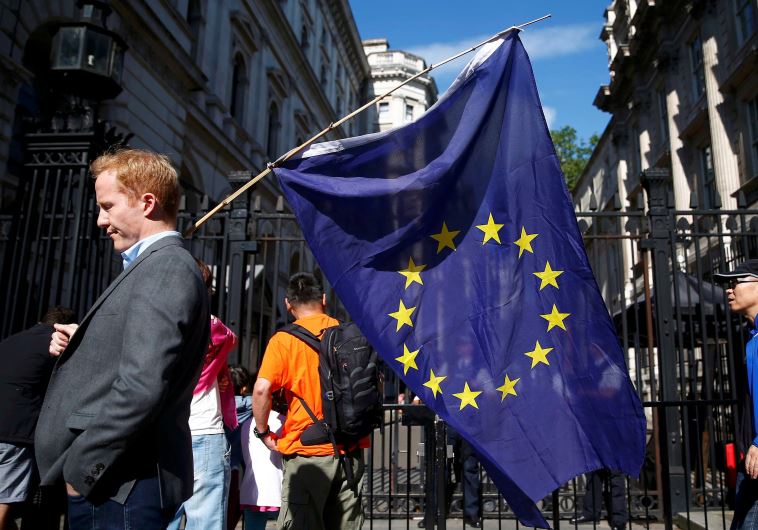Analysis: On diplomatic front, weaker EU not necessarily bad for Israel
Israel loses good friend in Cameron, but leading contenders to succeed him – Johnson, Osborne – also very friendly.
 A man carries a EU flag, after Britain voted to leave the European UnionUpdated:
A man carries a EU flag, after Britain voted to leave the European UnionUpdated: